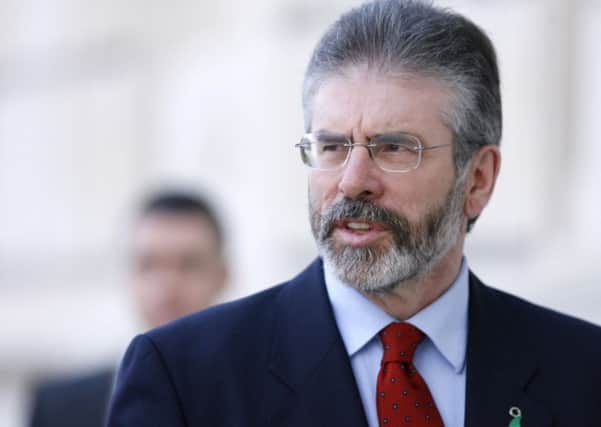Poll shows Sinn Fein ‘as popular as government’


Analysts say Sinn Fein could win both parliamentary seats being filled in two special elections Friday, putting more pressure on the two-party government of Prime Minister Enda Kenny with a general election looming by 2016.
Thursday’s findings in the Irish Times newspaper put Kenny’s centre-right Fine Gael party at 24 per cent voter support, the same as the previous poll in May.
Advertisement
Hide AdAdvertisement
Hide AdBut this time, Sinn Fein rose 4 percentage points to join Fine Gael at 24 per cent.
The combination of government unpopularity amid higher taxes and crippling household debts, versus Sinn Fein’s left-wing appeal to shift tax burdens to Ireland’s richest citizens, could continue to 2016, when the government plans to commemorate the 100th anniversary of Dublin’s Easter Rising against British rule and nationalist sentiments could be stoked further.
Thursday’s poll by survey firm Ipsos MRBI had an error margin of 3 percentage points.
It indicated that two other parties or independent lawmakers could play a role in the next Irish government.
Fianna Fail, the once-dominant party blamed for imploding Ireland’s economy at the end of the last decade, rated 20 per cent support, down 5 points.
Kenny’s coalition partner, the left-wing Labour Party, was on 9 per cent. Independent lawmakers had 23 per cent support.
Fine Gael and Fianna Fail trace their origins to a split in the original Sinn Fein movement that backed the 1916 Rising and 1919-21 war of independence from Britain.
Today’s Sinn Fein led by Gerry Adams evolved from the ranks of the Provisional branch of the Irish Republican Army in neighbouring Northern Ireland.
Advertisement
Hide AdAdvertisement
Hide AdUntil the past decade, Sinn Fein struggled to win elections in the Republic of Ireland because of its links to Provisional IRA bloodshed.
But the party has scored steady gains in the south since the Provisionals renounced violence in 2005 and Sinn Fein formed a Northern Ireland unity government in 2007 alongside British Protestants.